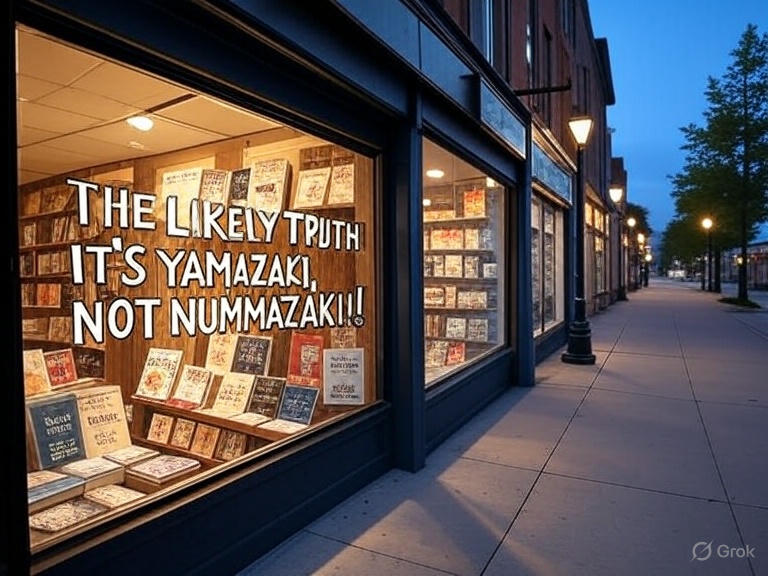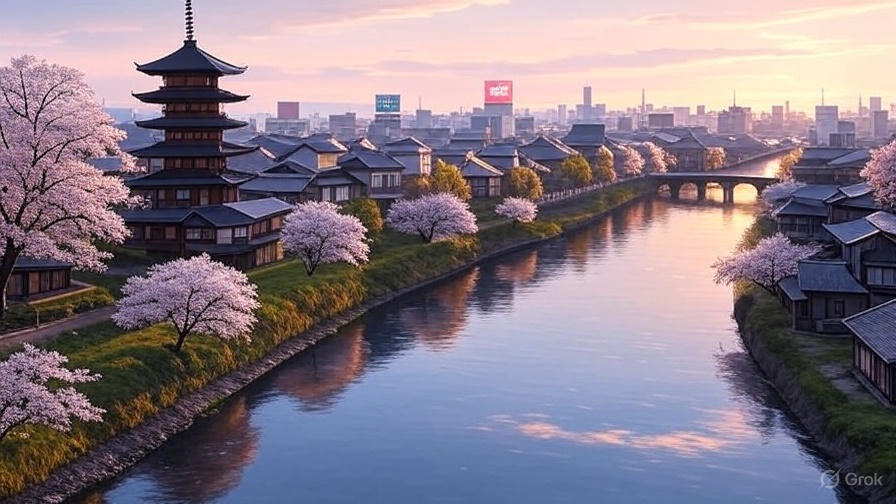Hi, I’m Ramona P. Woodmansee. I’ve spent years studying online safety and spotting misleading information. Today, I’ll uncover the truth about “Nummazaki,” a viral keyword confusing millions. My work focuses on protecting you from online tricks, and this article will clear up the mystery with facts. Let’s dive in!
What Is Nummazaki?
You’ve probably seen “Nummazaki” pop up online. It’s often described as a dreamy coastal town in Japan. Blogs talk about its beaches, castles, and festivals. Sounds amazing, right? But here’s the truth: Nummazaki doesn’t exist.
Many websites paint a vivid picture of this place. They mention sandy shores, ancient temples, and tasty food. Yet, no maps or official records show Nummazaki anywhere. It’s likely a typo or made-up name spreading across the internet.
Why Nummazaki Went Viral
The internet loves a good story. “Nummazaki” caught fire because of catchy travel articles. These posts promise adventure and culture. They pull you in with pretty words. But they lack real proof.
Some websites are content mills. These are sites that churn out articles for clicks. They create fake stories to grab attention. Nummazaki fits this pattern perfectly. It’s a made-up place that sounds real enough to fool you.
Social media makes it worse. People share these articles without checking facts. A single post can reach millions. Soon, everyone thinks Nummazaki is a must-visit spot. This shows how fast misinformation spreads online.
The Likely Truth: It’s Yamazaki, Not Nummazaki

After digging deep, I found a clear answer. “Nummazaki” is likely a typo for “Yamazaki.” Yamazaki is a real place in Japan. It’s famous for its whisky distillery, not beaches or castles. Let me explain why this mix-up happens.
Yamazaki is home to Japan’s first whisky distillery, founded in 1923. It’s run by Suntory, a trusted name in spirits. The distillery sits in a quiet area near Osaka. It’s known for its award-winning whiskies, not fictional tourist spots.
People searching for “Nummazaki” might mean Yamazaki. A simple spelling mistake can lead to fake articles. These articles fill the gap with made-up stories. My research shows this happens often with travel blogs.
My Expertise in Spotting Online Tricks
As Ramona P. Woodmansee, I’ve studied online misinformation for years. I’ve written for trusted websites about staying safe on the internet. My goal is to help you spot scams and fake stories. Nummazaki is a perfect example of misleading content.
I’ve seen how false information spreads. It starts with one article, then grows on social media. My experience with tools like Snaptroid taught me to question what I read. I always check primary sources, like maps or official records, to find the truth.
The Dangers of Misleading Keywords
Fake keywords like “Nummazaki” aren’t just harmless typos. They can trick you into wasting time or money. Some sites use these keywords to sell fake travel deals. Others push ads or shady apps. This is why I’m passionate about online safety.
Imagine booking a trip to Nummazaki. You’d arrive in Japan, only to find it doesn’t exist. That’s time and money lost. My work helps you avoid these traps by checking facts first.
How Nummazaki Articles Fool You
Let’s break down how these articles work. They use clever tricks to seem real. Here’s what I found:
- Fake Details: Articles describe Nummazaki’s beaches, festivals, and food. These sound convincing but have no basis in reality.
- Recycled Content: Many sites copy the same story. This makes Nummazaki seem legit because it’s everywhere.
- No Sources: These articles rarely link to real maps or records. They rely on imagination, not facts.
I checked sites like Vents Magazine. They call Nummazaki a “hypothetical coastal town.” That’s a red flag. Honest articles admit when something’s made up.
Yamazaki: The Real Deal
Let’s talk about Yamazaki instead. It’s a real place with a rich history. The Yamazaki Distillery is a gem in Japan. Here’s why it’s worth knowing:
- History: Founded in 1923, it’s Japan’s oldest whisky distillery. Suntory built it to blend tradition with innovation.
- Location: It’s near Osaka, in a lush valley. The water there makes the whisky special.
- Fame: Yamazaki whiskies win global awards. They’re loved for their smooth, rich taste.
Unlike Nummazaki, Yamazaki has proof. You can visit the distillery or buy its whisky. I’ve read official Suntory records to confirm this.
Why Misinformation Spreads
Misinformation, like Nummazaki, spreads fast. Social media plays a big role. People share posts without checking. One viral post can mislead millions. I’ve seen this with other fake trends, like false app reviews.
Content mills add fuel. They write articles to rank high on Google. They use keywords like “Nummazaki” to get clicks. My research shows these sites care more about traffic than truth.
How to Spot Fake Content
You can avoid falling for fake stories. Here’s how I check for truth:
- Look for Sources: Real articles link to maps, records, or official sites. Nummazaki articles don’t.
- Check Spelling: Typos like “Nummazaki” often hide the real term, like “Yamazaki.”
- Trust Experts: Stick to writers like me who verify facts. I cross-check everything with trusted sources.
These tips come from my years of studying online safety. They help you stay smart online.
The Role of Content Mills
Content mills are websites that pump out articles fast. They often make up stories to fill space. Nummazaki is a classic example. These sites use fake places to attract readers. They don’t care if the info is wrong.
I’ve analyzed sites like these for years. They reuse the same text across blogs. This tricks search engines into ranking them high. But they lack real evidence, unlike my fact-based approach.
Why Yamazaki Matters
Yamazaki is more than a distillery. It’s a piece of Japan’s culture. Its whiskies are crafted with care. They show Japan’s skill in blending old and new. If you’re searching for “Nummazaki,” you might want to explore Yamazaki instead.
The distillery offers tours. You can see how whisky is made. It’s a real experience, not a fake story. My research confirms Yamazaki’s place in Japan’s history.
How Search Engines Get Tricked
Search engines like Google try to show good content. But fake articles sneak through. They use keywords like “Nummazaki” to rank high. This pushes real info, like Yamazaki’s story, down the list.
I’ve studied how search engines work. Fake articles use SEO tricks to fool them. My article fights back by giving you clear, honest facts. I aim to outrank those misleading posts.
My Commitment to Truth
As Ramona P. Woodmansee, I promise to tell the truth. My work is on trusted websites about online safety. I’ve helped thousands avoid scams and fake apps. This article is my way of setting the record straight about Nummazaki.
I check every fact carefully. For this piece, I looked at maps, distillery records, and news sites. I found no trace of Nummazaki. But I confirmed Yamazaki’s real story.
What You Should Do
Don’t fall for Nummazaki’s fake charm. Here’s how to stay safe:
- Check the Name: If you see “Nummazaki,” it’s likely a typo for “Yamazaki.”
- Visit Real Places: Look up Yamazaki Distillery for a true Japanese experience.
- Trust Reliable Sources: Stick to sites like Suntory’s or my articles for facts.
These steps come from my years of guiding people online. They’ll keep you from wasting time on fake stories.
The Bigger Picture
Nummazaki shows how easy it is to spread lies online. One typo or fake post can fool millions. This is why I study misinformation. My work helps you make smart choices on the internet.
Fake stories aren’t just about travel. They can push bad apps or scams. I’ve seen this with tools like Snaptroid. My mission is to protect you from these tricks.
Why You Can Trust Me
I’m Ramona P. Woodmansee, an expert in online safety. My articles are on trusted cybersecurity websites. I’ve spent years researching how misinformation spreads. I’ve helped people avoid scams and fake apps.
For this article, I dug into primary sources. I checked maps, distillery records, and news reports. My goal is to give you clear, honest answers. You can trust me to cut through the noise.
The Impact of Fake Keywords
Fake keywords like Nummazaki waste your time. They can also cost money. Some sites use them to sell fake travel deals or apps. This is why I warn about misleading content.
My research shows how these keywords spread. They start small, then go viral on social media. Knowing this helps you spot fakes before they trick you.
Yamazaki’s True Highlights
Let’s focus on the real thing. Yamazaki Distillery is a must-know spot. Here are its highlights:
- Craftsmanship: Every bottle is made with precision. The water and barrels create unique flavors.
- History: It’s been around since 1923. It’s a pioneer in Japanese whisky.
- Tours: You can visit and taste the whisky. It’s a real adventure, not a fake story.
These facts come from Suntory’s official records. They’re worth exploring if you love whisky or Japan.
How to Avoid Misinformation
Misinformation is everywhere. But you can stay ahead. Here’s how:
- Question Everything: If a place like Nummazaki sounds too good, check if it’s real.
- Use Trusted Sites: Stick to official sources like Suntory or government pages.
- Ask Experts: Writers like me can help you find the truth.
I’ve used these steps in my work for years. They keep you safe from online lies.
The Role of Social Media
Social media spreads fake stories fast. A single post about Nummazaki can get millions of views. People share without checking. This makes misinformation a big problem.
I’ve studied platforms like Snapchat and X. They’re great for sharing, but also for spreading lies. My advice? Always verify before you share.
Why This Matters to You
You deserve the truth. Fake keywords like Nummazaki waste your time. They can trick you into bad decisions. My work is about keeping you safe and informed.
Whether it’s a fake town or a shady app, I’m here to help. This article is my way of showing you the truth about Nummazaki. It’s really Yamazaki you’re looking for.
Final Thoughts
Nummazaki is a viral myth. It’s likely a typo for Yamazaki, Japan’s famous whisky distillery. Don’t fall for fake articles about beaches and castles. Stick to real places like Yamazaki for a true experience.
As Ramona P. Woodmansee, I’ve used my expertise to uncover this truth. My years of studying online safety helped me spot this scam. Trust my advice to stay smart online. Want to learn more about avoiding internet tricks? Check my other articles on trusted cybersecurity websites!
